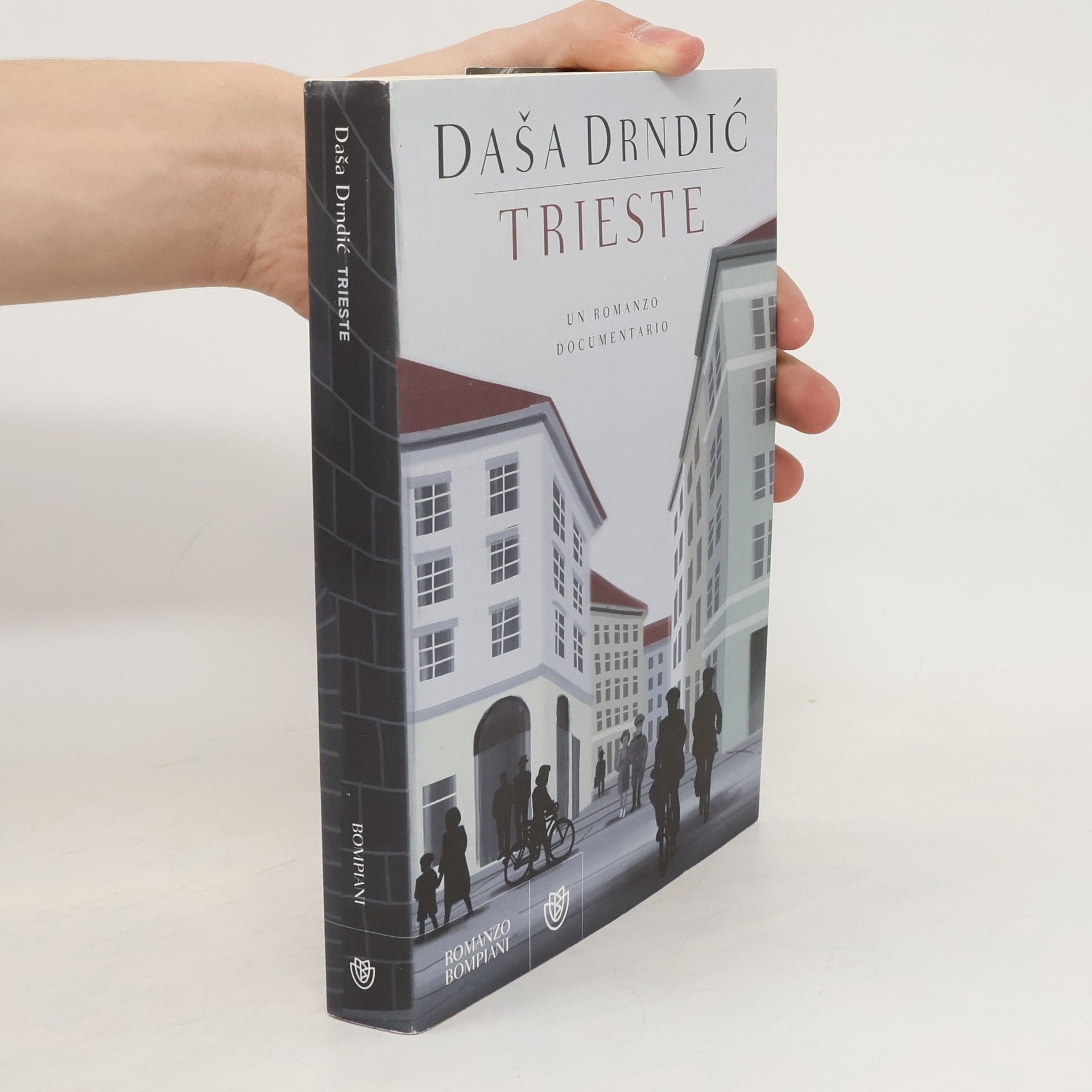A bristling follow-on from Belladonna - shortlisted for both the EBRD Prize and the Oxford-Weidenfeld Translation Prize
Daša Drndić Livres
Daša Drndić était une auteure croate distinguée dont les œuvres abordaient des thèmes complexes avec un style singulier. Son écriture, marquée par une profonde intelligence et une maîtrise littéraire, explorait souvent les paysages historiques et culturels avec une perspicacité incisive. Drndić était reconnue pour sa capacité à tisser des fils narratifs, créant des œuvres qui résonnent auprès des lecteurs et les incitent à une profonde contemplation. Sa contribution à la littérature se distingue par son originalité et son engagement à explorer des territoires littéraires inexplorés.





Belladonna
- 400pages
- 14 heures de lecture
You read this generous, angry, and candid novel of ideas in a continuing state of wondrous disquiet . . . Belladonna is brutal, beautiful, and unforgettable. Dasa Drndic achieves her mission, proving that silence cannot erase the past. Memory stalks us, and always triumphs Eileen Battersby Los Angeles Review of Books 20180129
Eine Mutter wartet auf ihren Sohn. 62 Jahre zuvor ist er von den Nazis aus Gorizia in der Nähe von Triest entführt worden. Hier hatte sie als junges Mädchen eine Affäre mit einem SS-Offizier. Anders als der Rest ihrer jüdischen Familie hat sie überlebt - und jahrzehntelang nach ihrem Sohn gesucht. Bei ihrer Suche stößt sie auf andere Schicksale, liest Zeugenaussagen, betrachtet Fotos und Erinnerungsstücke. Daša Drndic zeigt die Mechanismen des Bösen auf, führt vor, wie aus gewöhnlichen Menschen Verbrecher wurden und schreibt gegen das Vergessen und die Vertuschung an. Sie beschwört die Vergangenheit herauf und verflucht in Sebaldscher Manier Fakt und Fiktion, um sich dem zu nähern, was die Wahrheit sein könnte.
Haya Tedeschi è a Gorizia, sola e circondata da una cesta di fotografie e ritagli di giornali. È una donna anziana, che dopo 62 anni aspetta di ricongiungersi a suo figlio, avuto da un ufficiale delle SS e rapito dalle autorità tedesche per far parte del programma segreto di Himmler: il progetto Lebensborn. Il figlio che sta cercando disperatamente era nato nel 1915 da una relazione con Kurt Franz, giovane ufficiale tedesco alto e biondo di cui si era innamorata, senza sapere che era già a capo del campo di lavoro di Treblinka. Haya riflette sulle esperienze della sua famiglia ebrea convertita al cattolicesimo, e sul massacro degli ebrei italiani nella Risiera di San Sabba, il campo di concentramento di Trieste. La ricerca ossessiva di suo figlio la conduce tra fotografie, mappe, le deposizioni ai processi di Norimberga e le testimonianze dirette delle atrocità avvenute sulla sua porta di casa. Da questo romanzo emerge la sconcertante cronaca dell'occupazione nazista nel nord Italia. Ci sono 9000 nomi elencati nel libro: sono i nomi degli ebrei italiani che hanno trovato la morte nei campi di concentramento nazisti durante la seconda guerra mondiale e il loro susseguirsi compone un inaudito memoriale delle vittime.
Apríl v Berlíne
- 373pages
- 14 heures de lecture
V prozaickej knihe Apríl v Berlíne sa Daša Drndić vydáva pátrať po osudoch emigrantov, ktorí poznamenali dvadsiate storočie. Prostredníctvom osobných vyznaní i spovedí osôb, s ktorými vedie rozhovory, či už sú známe alebo patria medzi takzvaných obyčajných malých ľudí, zostavuje komplexný veľký príbeh. Apríl v Berlíne skúma históriu strednej Európy, toho imaginárno-reálneho priestoru, ktorý viac než zemepisné fakty určujú ľudia a ich osudy, ich presuny, ekonomické a politické migrácie. Ľudia, ktorí idú za politickými a dejinnými determinantami, ktorí sa z pokolenia na pokolenie sťahujú po celej Európe, ale aj po svete, a tak stredná Európa už nie je len geografické heslo, ale aj, a oveľa viac, ľudská mapa. Práve túto ľudskú mapu, ktorá charakterizovala dvadsiate storočie, a poznamenáva aj to dvadsiate prvé, Daša Drndić pred čitateľa rozkladá a odhaľuje, či už je reč o nej samej a osude jej rodiny, alebo je reč o tých, s ktorými sa rozprávala. Naliehavosťou výpovede provokuje aj čitateľa zamyslieť sa nad sebou a pátrať po minulosti vlastnej rodiny.